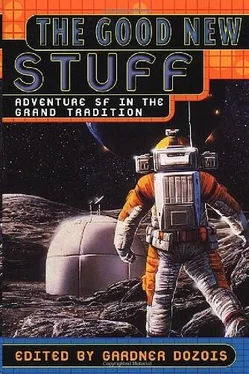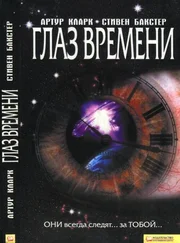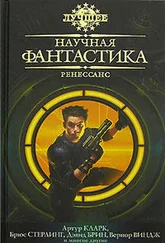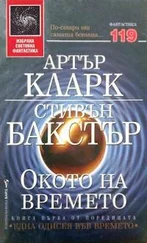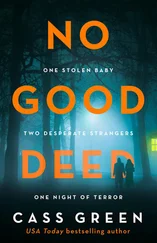Стивен Бакстер - The Good New Stuff
Здесь есть возможность читать онлайн «Стивен Бакстер - The Good New Stuff» весь текст электронной книги совершенно бесплатно (целиком полную версию без сокращений). В некоторых случаях можно слушать аудио, скачать через торрент в формате fb2 и присутствует краткое содержание. Год выпуска: 2002, ISBN: 2002, Издательство: St. Martin's Griffin, Жанр: Фантастика и фэнтези, на английском языке. Описание произведения, (предисловие) а так же отзывы посетителей доступны на портале библиотеки ЛибКат.
- Название:The Good New Stuff
- Автор:
- Издательство:St. Martin's Griffin
- Жанр:
- Год:2002
- ISBN:0-312-26456-9
- Рейтинг книги:3 / 5. Голосов: 1
-
Избранное:Добавить в избранное
- Отзывы:
-
Ваша оценка:
- 60
- 1
- 2
- 3
- 4
- 5
The Good New Stuff: краткое содержание, описание и аннотация
Предлагаем к чтению аннотацию, описание, краткое содержание или предисловие (зависит от того, что написал сам автор книги «The Good New Stuff»). Если вы не нашли необходимую информацию о книге — напишите в комментариях, мы постараемся отыскать её.
The Good New Stuff — читать онлайн бесплатно полную книгу (весь текст) целиком
Ниже представлен текст книги, разбитый по страницам. Система сохранения места последней прочитанной страницы, позволяет с удобством читать онлайн бесплатно книгу «The Good New Stuff», без необходимости каждый раз заново искать на чём Вы остановились. Поставьте закладку, и сможете в любой момент перейти на страницу, на которой закончили чтение.
Интервал:
Закладка:
Sterling would spend the rest of the eighties up to his hips in blood as one of the chief antagonists in the newly launched Cyberpunk War in SF, editing the influential anthology Mirrorshades: The Cyberpunk Anthology, writing fierce manifestos and letters, and relentlessly hyping cyberpunk in his agitprop organ, Cheap Truth, almost certainly the most influential, admired, and loathed critical magazine of the decade, even though it was only a shoddy-looking photocopied fanzine sent out to a reader list— selected personally by Sterling— of only a few hundred people. What would be obscured by all the fierce polemics and bitter infighting was the fact that Sterling was undoubtedly the best new hard-science writer of the decade, rivaled for the title only by Greg Bear. Ironically, the traditional hard science audience, centered now around Analog and Jim Baen's Far Frontiers, would be put off by Sterling's political stance and by the punk flavor of his work, and would have nothing to do with him, while he would receive most of his support outside of his own core clique from the leftist literary intellectuals like John Kessel that Cheap Truth would devote a good deal of its energy to attacking.
Toward the end of the eighties and the beginning of the nineties, Sterling would publish two more novels, a somewhat overblown "steampunk" novel in collaboration with William Gibson, The Difference Engine, and a complex political future thriller, Islands in the Net. Perhaps because of backlash from the Cyberpunk Wars, Islands in the Net would be largely ignored, although it was more mature and thoughtful than his earlier work, with more fully rounded and more psychologically complex characters. After this, perhaps partially as a result, Sterling retreated into the "New Journalism" for a couple of years, making a major impact with his first (and, so far, only) nonfiction book, a study of First Amendment issues in the world of computer networking, The Hacker Crackdown: Law and Disorder on the Electronic Frontier, as well as with a series of articles for Wired magazine that made him one of that magazine's big guns (ironically, he may have a bigger reputation as a journalist, especially with the Internet crowd, than he does as a science fiction writer).
In the mid-nineties, after the dust settled and the Cyberpunk Wars had retreated into memory (to the point that critics are now beginning to speak about "post-cyberpunk" work), Sterling returned to the field with two of his best books, Heavy Weather and Holy Fire (with Holy Fire in particular providing as complex, detailed, and fully realized a vision of what the future might actually be like as any that science fiction as a genre has to offer), and a handful of new short stories such as "Sacred Cow" and "Deep Eddy," one of which, "Bicycle Repairman," finally earned him a long-overdue Hugo in 1997.
Sterling is still a young writer by any reasonable definition of the term, and— unless he gets hit by a truck or snuffed by one of the Russian mafia types and computer criminals he hangs out with in his capacity as a hip techno-journalist— will probably keep on growing and evolving well into the next century. Already, his influence has been profound. Although widely recognized as one of the two main "cyberpunk" works, Schismatrix was overshadowed at the time by William Gibson's first novel, Neuromancer, a more accessible book that would have a powerful and immediate impact on much subsequent SF. I've heard critics say that it was odd that Schismatrix didn't have a greater impact… but, in fact, its impact may ultimately turn out to be as large as that of Neuromancer— it's just taken longer to show up. If you want to know where all of Schismatrix's influence went, all you have to do is look at some of the recent works of the New Baroque Space Opera, especially British Space Opera, being written by people such as lain M. Banks, Colin Greenland, Stephen Baxter, Paul J. McAuley, Alastair Reynolds, and Peter F. Hamilton. In fact, on the British side of the Atlantic, at least, I'd have to say that Schismatrix has probably had more influence on the development of the New Space Opera than any other single book, with the exception of Samuel R. Delany's Nova. It would be very interesting to see Sterling himself return to the Baroque Space Opera somewhere down the road, and I hope he does.
Sterling's other books include the collections Crystal Express and Globalhead. His most recent book is the omnibus collection (it contains the novel Schismatrix as well as the rest of his Shaper/Mechanist stories) Schismatrix Plus. He lives with his family in Austin, Texas. His latest novel, Distraction, is due out soon.
"I will miss your conversation during the rest of the voyage," the alien said.
Captain-Doctor Simon Afriel folded his jeweled hands over his gold-embroidered waistcoat. "I regret it also, ensign," he said in the alien's own hissing language. "Our talks together have been very useful to me. I would have paid to learn so much, but you gave it freely."
"But that was only information," the alien said. He shrouded his bead-bright eyes behind thick nictitating membranes. "We Investors deal in energy, and precious metals. To prize and pursue mere knowledge is an immature racial trait." The alien lifted the long ribbed frill behind his pinhole-sized ears.
"No doubt you are right," Afriel said, despising him. "We humans are as children to other races, however; so a certain immaturity seems natural to us." Afriel pulled off his sunglasses to rub the bridge of his nose. The starship cabin was drenched in searing blue light, heavily ultraviolet. It was the light the Investors preferred, and they were not about to change it for one human passenger.
"You have not done badly," the alien said magnanimously. "You are the kind of race we like to do business with: young, eager, plastic, ready for a wide variety of goods and experiences. We would have contacted you much earlier, but your technology was still too feeble to afford us a profit."
"Things are different now," Afriel said. "We'll make you rich."
"Indeed," the Investor said. The frill behind his scaly head flickered rapidly, a sign of amusement. "Within two hundred years you will be wealthy enough to buy from us the secret of our starflight. Or perhaps your Mechanist faction will discover the secret through research."
Afriel was annoyed. As a member of the Reshaped faction, he did not appreciate the reference to the rival Mechanists. "Don't put too much stock in mere technical expertise," he said. "Consider the aptitude for languages we Shapers have. It makes our faction a much better trading partner. To a Mechanist, all Investors look alike."
The alien hesitated. Afriel smiled. He had appealed to the alien's personal ambition with his last statement, and the hint had been taken. That was where the Mechanists always erred. They tried to treat all Investors consistently, using the same programmed routines each time. They lacked imagination.
Something would have to be done about the Mechanists, Afriel thought. Something more permanent than the small but deadly confrontations between isolated ships in the Asteroid Belt and the ice-rich Rings of Saturn. Both factions maneuvered constantly, looking for a decisive stroke, bribing away each other's best talent, practicing ambush, assassination, and industrial espionage.
Captain-Doctor Simon Afriel was a past master of these pursuits. That was why the Reshaped faction had paid the millions of kilowatts necessary to buy his passage. Afriel held doctorates in biochemistry and alien linguistics, and a master's degree in magnetic weapons engineering. He was thirty-eight years old and had been Reshaped according to the state of the art at the time of his conception. His hormonal balance had been altered slightly to compensate for long periods spent in free-fall. He had no appendix. The structure of his heart had been redesigned for greater efficiency, and his large intestine had been altered to produce the vitamins normally made by intestinal bacteria. Genetic engineering and rigorous training in childhood had given him an intelligence quotient of one hundred and eighty. He was not the brightest of the agents of the Ring Council, but he was one of the most mentally stable and the best trusted.
Читать дальшеИнтервал:
Закладка:
Похожие книги на «The Good New Stuff»
Представляем Вашему вниманию похожие книги на «The Good New Stuff» списком для выбора. Мы отобрали схожую по названию и смыслу литературу в надежде предоставить читателям больше вариантов отыскать новые, интересные, ещё непрочитанные произведения.
Обсуждение, отзывы о книге «The Good New Stuff» и просто собственные мнения читателей. Оставьте ваши комментарии, напишите, что Вы думаете о произведении, его смысле или главных героях. Укажите что конкретно понравилось, а что нет, и почему Вы так считаете.
